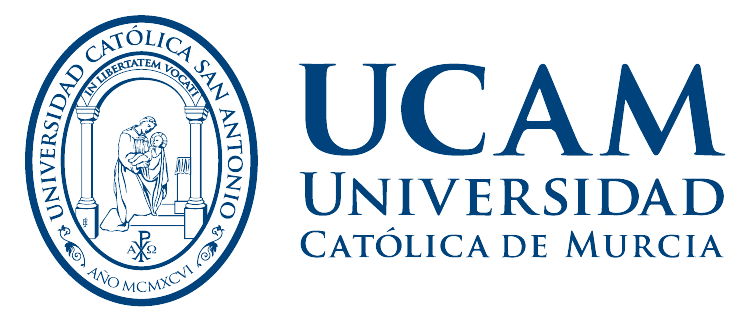MBA in
Artificial Intelligence and Blockchain
The MBA programme in Artificial Intelligence and Blockchain provides a strong foundation in these cutting-edge technologies. It equips students with essential knowledge to understand and apply AI and blockchain solutions, preparing them to lead and innovate in industries embracing digital transformation.

The MBA programme in Artificial Intelligence and Blockchain, offered by Magna Carta College in collaboration with UCAM, provides a thorough educational experience, equipping students with essential skills to lead in the rapidly evolving fields of AI and blockchain. This programme emphasizes strategic thinking, enhancing technological integration within organisations, and fostering leadership in global tech landscapes.
Students will delve into key areas such as AI applications, blockchain technology, data analytics, and ethical considerations. The programme’s strength lies in its focus on evidence-based practices and advanced research, addressing the complexities of integrating AI and blockchain across industries. This approach promotes innovation, adaptability, and strategic problem-solving in a dynamic digital world.
The curriculum offers a global perspective, demonstrating how organisations can leverage AI and blockchain technologies to gain a competitive edge. Ultimately, the programme prepares future leaders to navigate the intricate dynamics of these technologies, fostering effective decision-making and innovation in the digital age.
Programme Modules
The programme includes the following modules: (CO: Compulsory; OP: Optional; MD: Master’s Dissertation;)
This module provides an in-depth understanding of financial markets, focusing on key concepts essential for global finance. Students will analyze money movement, private investments, and corporate financial activities, including taxation and secret money. The course covers investment decision-making, risk and return, foreign investment, and stock market strategies. It also addresses foreign exchange risk, financial statement analysis, and asset valuation, equipping students with the skills needed to navigate complex financial markets.
Objective of this Module:
- To understand how the numerous financial markets are connected.
- To appreciate the importance of such issues as taxation, transfer pricing, and
foreign investment on the global flow of funds. - To be able to measure the financial returns from investment.
- To be able to value a business.
- To examine the risks associated with foreign investment and to appreciate the
techniques for managing the risk.
This module provides an overview of international marketing, focusing on key concepts and strategies for competing in the global marketplace. It covers essential principles like segmentation, targeting, and positioning, with an emphasis on adapting and innovating in competitive environments. Students will explore branding using the Customer-Based Brand Equity (CBBE) approach and understand marketing communications through the Integrated Marketing Communications (IMC) framework. The module also covers international brand strategies, consumer research, and the ethical considerations in marketing across diverse cultural contexts.
Objective of this Module:
- To understand international marketing thought’s historical development from
its roots in classical economics in the USA to the normative tradition promoted
by academic/consultants such as Drucker, Levitt and Kotler in journals such
as the Harvard Business Review. - To generate understanding of popular normative marketing concepts such as
the Marketing Mix and STP through application in practical case scenarios. - To understand branding using Customer Base Brand Equity (CBBE)
- To appreciate the scope of marketing activity including Integrated Marketing
Communications theory (IMC) - To develop an awareness of some of the work that critiques the practical and
theoretical assumptions of the managerial marketing tradition, and which
explores the idea of marketing as an intellectual domain.
This module explores strategic management, focusing on key aspects like strategic positioning, competitive advantage, and sustainability. It examines how to leverage unique resources and capabilities to create value chains and achieve corporate success. The module also covers corporate strategy, including resource allocation and decision-making at the enterprise level. A key emphasis is placed on the international dimension of strategy, comparing national and global strategies, and analyzing the role of leadership, organizational learning, and cultural influences in shaping successful international businesses.
Objective of this Module:
- Evaluate the factors that need to be considered in analysing a firm’s external
environment, the internal core competences of a firm and formulate a
business strategy for a firm - Understand the nature of corporate strategy.
- Understand the nature of international strategy
- Understand the different types of leadership
- Understand the relationship of leadership to strategy
This module examines the impact of organizational structure and HRM on corporate success, focusing on the interrelationship between individuals, organizations, and their environment. It covers labor market dynamics, intellectual capital, and recruitment strategies, along with job analysis, competency frameworks, and psychometric testing. The module emphasizes strategic HR development, including training, performance management, and succession planning. It also explores participative decision-making, employee relations, and the importance of cultural differences in HRM practices, particularly in international contexts and cross-border management.
Objective of this Module:
Discuss critically the relationships between personnel management, employee relations and human resource management [HRM].
Understand the nature of national cultures and their comparison with institutional and other differences between nations relevant to HRM.
Evaluate the impact of internal and external (national and international) labour markets on the kinds of human resource strategies drawn up by organizations.
Understand the impact of cultural differences on the processes of management
Evaluate different methods of recruiting, selecting, developing and training staff cross nationally.
This module provides an overview of the research process, starting with formulating research questions and crafting effective proposals. It emphasizes literature reviews, qualitative and quantitative research methods, and content analysis. Students will also learn how to structure their research logically and engage in thesis writing, equipping them with essential skills for conducting and presenting high-quality research.
Objective of this Module:
- Be able to devise a Research Question
- Be able to design and propose a viable research project
- Be able to understand the different methodologies employed in international management research
- Be able to make an informed choice of data collection methods for a given research area or research question
- Present research results in a systematic manner, write and structure a dissertation
This course introduces students to managing and securing large-scale data. It builds on big data, network analysis, and unstructured data concepts, comparing traditional relational databases with modern NoSQL designs. Students will learn to choose the right database for specific needs when handling big data and explore the importance of cybersecurity in this context.
Objective of this Module:
- Understand the overview of Computerisation through application of
computer systems, database management of decision support
systems. - Appreciate the importance of computer mediated communication.
- Develop skills for ICT application in the workplace.
- Understand the role of multimedia technology in creation of global
communities. - Integrate the role of people and technology in business outcomes
This course introduces machine learning, artificial intelligence, and forecasting, with a focus on finance and management applications. It covers recent trends in FINTECH, driven by data analytics and machine learning advancements. The course also provides an introduction to Python, a key programming language for data analytics and machine learning, with no prior programming knowledge required.
Objective of this Module:
Understand the overview of Computerisation through application of
computer systems, database management of decision support systems.Appreciate the importance of computer mediated communication.
Understand the social and organisational aspects of workplace
Understand the role of multimedia technology in creation of global
communities.Integrate the role of people and technology in business outcomes
Students will undertake a dissertation on a relevant topic, developed in collaboration with the Programme Director. The module focuses on developing research questions, methodology, and critical analysis skills. Students will conduct literature reviews, data collection, and analysis, culminating in a comprehensive dissertation, enhancing their ability to perform independent research and offer new insights.
Objective of this Module:
- Plan and manage a project
- Define the aims of this project
- Identify the data sources and methods appropriate to conduct the project
- Identify the potential pitfalls to conducting such projects
- Execute the dissertation plan
Key highlights of course
- Flexible Scheduling for Professionals
- Live Interactive Learning
- Strong Focus on Analytical and Strategic Thinking
- Comprehensive Career Services
- Relevant Curriculum Tailored to Industry Needs
- Global Perspective on Business Practices
- Global Perspective on Business Practices
- Lifelong Learning and Alumni Network
- Leadership and Management Training
- Entrepreneurial Thinking and Innovation
Interested? Let us Contact You
Meet our Faculty

Professor David Faulkner, Academic Dean
In today’s globalised world, advanced business education is crucial for success. Our MBA programme at Magna Carta College, in partnership with UCAM, provides you with the skills and knowledge to thrive in leadership or entrepreneurial roles.
At Magna Carta College, we focus on empowering students with the qualities needed to stand out in a competitive job market. Join our supportive learning community and take the next step towards a successful career.
We invite you to join our transformative learning
environment, dedicated to empowering and
guiding you on your journey towards a bright and
successful future!

Maggie Faulkner
Head of Partnerships

Murray Cooper
Programme Lead | Head of Quality

Dr Ali Raza Nemati
Deputy Programme lead / Lecturer

Sumbhal Manzoor
Lecturer

Dr. AR Shahid
Lecturer
Career Advancement with our
MBA Programme in Artificial Intelligence and Block Chain
Our Master of Business Administration (MBA) programme with a specialisation in Artificial Intelligence and Blockchain is meticulously designed to provide you with cutting-edge skills to lead in emerging fields that are transforming the business landscape. This programme equips you with expertise in AI-driven strategies and blockchain technology applications, alongside foundational knowledge in essential managerial areas like marketing, finance, human resources, and business consultancy.
The curriculum offers a balance of theoretical insights and practical experiences, preparing you for strategic leadership and complex problem-solving in a highly digitalised and innovative business environment. By blending AI and blockchain concepts with core MBA subjects, we aim to develop your capacity for critical analysis, forward-thinking leadership, and adaptability—skills vital for advancing in today’s fast-paced, globalised economy.
Upon completion, you will be ready to take on leadership roles in industries undergoing digital transformation or to launch entrepreneurial ventures that leverage these transformative technologies. This MBA programme ensures you are well-equipped to excel and make a lasting impact in the evolving world of business.
FAQs
An MBA (Master of Business Administration) is a graduate degree that provides a comprehensive understanding of various business functions, including finance, marketing, operations, and human resources. In our program, you’ll also explore specialized areas such as AI and Blockchain, Healthcare systems, Marketing, HR Management, Finance and Accounting, Global management and Supply Chain Management. Additionally, MBA programs enhance your soft skills, like leadership and communication, equipping you to channelize complex business environments effectively.
The level of challenge can vary depending on your prior experience and commitment. While the coursework is designed to be rigorous, it also offers ample support to help you thrive. The programme encourages both personal and professional growth.
The duration of our MBA programme is 1 year.
**Mode of Study**
The MBA programme is available in various formats to accommodate different learning preferences, including online learning, which allows you to study entirely through virtual lectures and resources; blended learning, which combines online and in-person sessions; and flexible distributed learning, enabling you to progress at your own pace with access to digital materials, making it ideal for busy professionals.
Our MBA programme offers a variety of specialized subjects, including AI and Blockchain, Healthcare Systems, Strategic Marketing Management, Human Resource Management, Accounting and Finance, Global management and Supply Chain. These courses are designed to equip you with the skills necessary to succeed in a rapidly changing business environment.
The online MBA programme will utilize Moodle as the primary Learning Management System (LMS), which facilitates access to high-quality learning materials. Additionally, the Student Support Desk will provide responsive support services, ensuring that students receive timely assistance. Vtiger CRM will be employed for personalized communication throughout the academic journey. Together, these resources are pivotal in helping students achieve their educational goals and succeed in the MBA program.
Many organizations today value the skills and competencies that candidates bring to the table, regardless of whether their degree was earned online or in a traditional classroom setting. Especially when the online MBA is from a reputed institution, employers recognize the rigor and dedication involved in completing such a program. Our online MBA is specifically tailored to equip you with practical, in-demand skills that will enhance your career prospects and prepare you for success in the competitive job market.

I chose Magna Carta College because of its convenient learning process, which was suitable for my working schedule. I would definitely recommend MCC to all my peers. I had easy access to the learning program, documentation, etc. In August 2019, the qualification helped me to join my current company, with an increase in salary and status.
Umid Z., Level 7 Diploma





